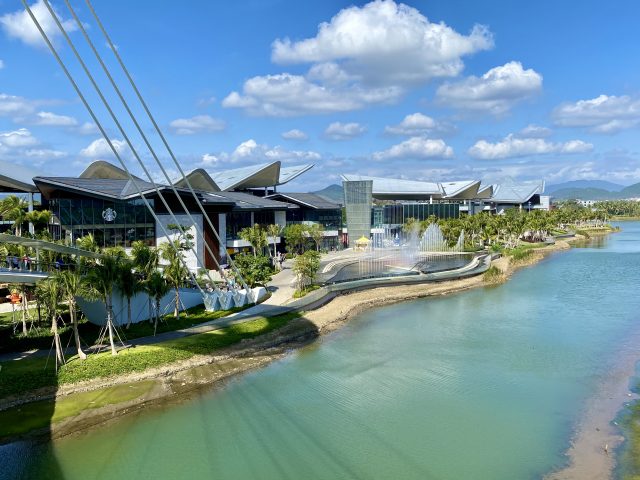Hainan duty-free shoppers would buy more drinks if they knew they could
There is potential for increasing duty-free drinks sales among Chinese residents visiting Hainan if they knew how to buy more, says new data.

Chinese holidaymakers visiting Hainan who are on the lookout for duty-free drinks could be spending more, including buying up Cognacs, if drinks brands were marketed to them before and after their trip, said market research company m1nd-set, suggesting there is still headroom for further sales in the area.
According to the research, a significant portion of shoppers in Hainan are still not taking advantage of their full duty free allowance, either on site or following the trip, and could still be using their post-trip online purchasing allowance and home delivery services.
Anna Marchesini, head of business development at m1nd-set told the drinks business: “When it comes to alcohol specifically, 45% of alcohol buyers used their full alcohol allowance of 1.5L”.
The findings showed that the reason the potential still existed was largely based on how consumers looking at buying drinks tended to be influenced by impulse within duty-free retail and yet footfall could still be boosted online and via delivery options at other times.
Marchesini pointed out that “alcohol shoppers tend to be more driven in their choices by the ‘perceived guaranteed authenticity of the products’ when buying in duty-free and by the impact of the sales staff in their purchase decision – therefore they have a higher likelihood of buying while in Hainan”.
Partner Content
Cognac was identified as one product category in particular that would benefit from being marketed further via e-commerce since it met most of these credentials and yet often consumers were reluctant to carry a big bottle.
Marchesini revealed: “Among those who used or plan to use their leftover duty-free allowance online after the trip, Cognac stands out as one of the key categories purchased online” and added: “in general, travellers to Hainan (i.e. non-residents in Hainan) are more likely to use their allowances than Hainan residents”.
Clara Susset, COO at m1nd-set, explained that the source of the problem is lack of clarity among shoppers of the allowance and home-delivery details and how they can take advantage of these opportunities. “Around three quarters of shoppers did not use their full 100,000 RMB (circa US$15,500) so there is still a great deal of untapped potential for retailers and brands to reach out to travellers with post-trip marketing campaigns.”
“More than two-thirds (36%) of Chinese shoppers in Hainan expressed a desire to purchase online but said they had difficulties in finding out where and how to do so” she continued. “Retailers and brands can bridge this gap through improved marketing campaigns and in particular, training the sales associates to encourage customers to take up the online purchasing opportunities to use their full allowance as well as make use of the home delivery option. While a relatively high percentage – more than half – of alcohol buyers use the service, when we look at the average across all categories, only 7% of shoppers said they made use of the home delivery service, since it was introduced early 2021.”
According to m1nd-set, this is particularly relevant when looking at the barriers to purchasing in Hainan. More than 20% of travellers who didn’t shop in Hainan said the reason was they didn’t want to carry more items with them. For middle-aged travellers, the figure is higher still at 37% according to the research, underlining the potential attractivity of a home delivery service for these non-shoppers.
“Communication is key and at a time when duty free sales have fallen across the globe, we must not be complacent and miss out on opportunities such as these in Hainan, where government regulations have enabled the industry to sell to the world’s largest consumer market, duty free without having to travel internationally.” Marchesini added.
Related news
Beer sector in India invests in Uttar Pradesh
What the doctor ordered: China’s burnt-out youth mix traditional medicine and cocktails




